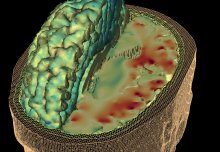

Noise noise go away
Noise from busy roads might increase heart disease risk, finds new study
Traffic noise, as well as air pollution, could affect heart health, according to new research.
 1
1



Noise from busy roads might increase heart disease risk, finds new study
Traffic noise, as well as air pollution, could affect heart health, according to new research.
 1
1


Video
Researchers show how diesel fumes could cause 'flare up' of respiratory symptoms
Scientists have shown how diesel fumes trigger respiratory reflexes which could potentially worsen underlying conditions, such as asthma.
 2
2


Readily available antibiotic could help to curb lung damage from TB
Imperial scientists have found how a common antibiotic could help reduce lung destruction in people with Tuberculosis (TB).


Imperial celebrates 'bumper crop' of new Fellows
Eight Imperial researchers have been elected to the Fellowship of the Academy of Medical Sciences.


Over 100 genetic hotspots linked to type 2 diabetes found, giving disease clues
Scientists have uncovered 111 new regions of the genes linked to type 2 diabetes, providing clues to the genetic basis of the disease.


Climate change gets personal at Imperial Festival
From air pollution in your neighbourhood, to ecosystems and energy sources, take time out to explore your environment this weekend.


3D model of American football player's brain reconstructs moment of impact
Scientists have modelled what happens to the brain of an American footballer when he collides forcefully with another player.


Video
The importance of new tools and approaches to combat malaria transmission
Dr Tom Churcher discusses the importance of new tools and approaches to combat malaria transmission.


Follow-up colonoscopies associated with a lower incidence of bowel cancer
Patients at risk of developing bowel cancer can significantly benefit from a follow-up colonoscopy, finds research published in Lancet Oncology.


Women with aortic aneurysms fare much worse than men, new study finds
Mortality rates for women undergoing surgery for abdominal aortic aneurysms are nearly twice those for men, a new study has found.